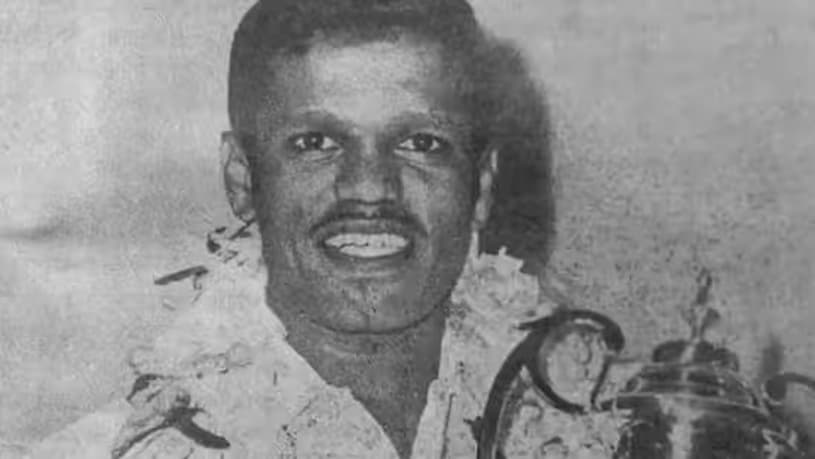The forward, along with Chuni Goswami and PK Banerjee, once helped India rule the continent.
Tulsidas Balaram, who died on Thursday at 85, was so far removed from the public eye that it never felt inappropriate to include him in that magical trio of Indian forwards that once ruled the continent and flickered in the Olympics.
The fact that Balaram had scored in the Olympics was irrelevant; Goswami, who is without a doubt the best flair player on the national team, had not.
It didn’t matter that he won the Arjuna award in 1962—one year before Goswami and only after Banerjee in football—because it didn’t matter.
Balaram was known for protecting his privacy in the same way that Greta Garbo and, closer to home, Suchitra Sen were.
His decision to withdraw from the spotlight carried more than a hint of vengeance. It hurt, especially considering that Goswami and Banerjee already had the Padma Shri.
This laid-back man was hurt as well because he was not taken seriously as an India selector. Balaram refused to attend a book launch the previous year because it was close to the East Bengal tent.
Balaram left East Bengal and the Kolkata Maidan, which had taken him in from City College Old Boys in Hyderabad in 1957 and treated him like one of their own.
Across the river and into Uttarpara, a municipality in the Hooghly district of West Bengal. He lived alone as a bachelor, but his neighbors, local merchants, and vegetable vendors never made him feel that way.
In their previous life, he almost excelled at football. His career was brief because of a severe case of pleurisy, which ended it in its prime.
However, Balaram competed in 36 international competitions, including two Olympics, two Asian Games, and the Merdeka Cup. India got 10 goals from him.
The goal of the players was to establish themselves in Kolkata. Balaram had made his Olympic debut for India in the 1956 Melbourne Games when he joined East Bengal in 1957.
Balaram was always one of the first names that coach Syed Rahim would pencil in, starting with his first game for India, which was a 1-4 defeat to Yugoslavia in the semi-final, until he retired.
Rahim, the man responsible for Indian football’s most significant moments from 1951 to 1962, called the Secunderabad teenager to test for the Santosh Trophy. Balaram was hesitant because money was a deterrent.
Novy Kapadia, a journalist, has written that he only came to Hyderabad for trials after Rahim paid him to rent a bicycle.
It marked the beginning of a wonderful partnership that, like the majority of Indian players of Balaram’s generation, came to an end when Rahim passed away in 1963.
Balaram had scored against Thailand and Japan in the 1962 Asian Games, where India won gold, and Hungary in the 1960 Olympics.
India won 12 of the 16 games Balaram, Goswami, and Banerjee played together between 1958 and 1962.
During that time, the three of them scored 20 of India’s 36 goals, with Goswami scoring seven, Banerjee scoring seven, and Balaram scoring six.
The three contributed to nine of India’s 11 goals as the team won gold at the 1962 Asian Games. They worked together to score India’s first goal in the championship game against South Korea. Balaram initiated the move, and Goswami provided the pass for Banerjee’s strike. With Jarnail Singh scoring the second goal, India prevailed 2-1.
In the days of five forwards, Goswami preferred to play inside-left, so Balaram played outside-left for India.
However, he also played outside-left for East Bengal, where he was the fastest to 100 goals, and later BNR. In 1963, he moved to the railway team because it meant a secure job.
As he would for Bengal, the team for which he won three of his four Santosh Trophy titles, the most recent of which came in 1962 as captain. Balaram was at ease playing on the right side of the forward line as well.
He was known for his control of the ball and ability to pass in a way that split the defense.
In 2020, Banerjee and Goswami passed away 41 days apart.
Aroon Ghosh and DMK Afzal are the only remaining members of the 1962 Asian Games squad. Balaram passed away after a prolonged illness.

